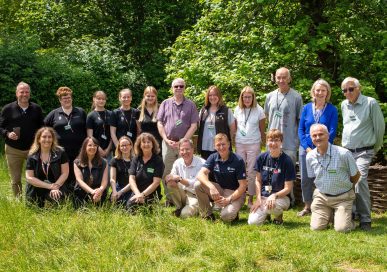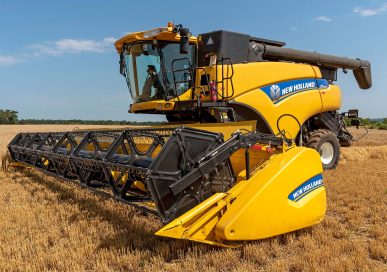On The Farm in June

A lot of farmers in the industry are seeing red when it comes to farm assurance schemes. A meeting was held last month at Lincoln’s Riseholme College to discuss the Red Tractor assurance scheme which many in the industry feel has lost its sense of direction, moving away from the original intention of underwriting the quality and provenance of our food for the benefit of British consumers.
The governance of Red Tractor is handled by the NFU alongside the AHDB (Agriculture and Horticulture Development Board), Dairy UK, NFU Scotland and the British Retail Consortium among 18 bodies who are industry representatives across the farming sector.
The scheme was originally set up in 2000 to give the public confidence that the food farmers produce is safe to eat and produced whilst remaining sympathetic to the environment. My big red folder, containing all of the bumf that participation in the Red Tractor Scheme necessitates, now includes health and safety, store locations, how many tonnes I’ve sold, and have in store. None of the above are concerned with food safety. From the meeting it became apparent that many believe anything already duplicated elsewhere beyond the Red Tractor scheme should not be part of the scheme.
Meanwhile, pop into one British supermarket and you can pick up bacon or pork products from Woodside Farms, summer fruit from Rosedene Farm and juicy plump red cherry tomatoes from Nightingale Farm. One problem: none of those farms exist, despite sounding all bucolic and wholesome.
Our food packaging and labelling system needs a complete overhaul. For instance, Danish pork, that is imported to the UK and packed here, is permitted to have the Union Jack on the packet. This is very wrong. The meeting formed part of a national review examining what needs to be done to ensure Red Tractor is fit for purpose, less bloated and less bureaucratic.
Elsewhere, there’s hope for Lincolnshire farmer (my godson) Henry Ward adjacent to the Barlings Eau at Shortferry, between Lincoln and Horncastle. Henry’s 200-acre farm (and several others in the area) has been under two metres of water since the end of October. His farm and home were encircled by water, accessible only by a small boat, and his losses are in excess of £150,000.
Despite this, Henry was ‘ineligible’ to make a claim for up to £25,000 from Defra’s Flood Recovery Fund (FRF) because his river was not on the designated list. Recently though the Rural Payments Agency (RPA) is reconsidering Henry’s case, so we hope for a fair-minded volte-face.
Ongoing poor weather continued to make the drilling of spring cereals very difficult. We still have our heavy land sugar beet to plant, and 150 acres of Capulet haricot beans – the variety used to create baked beans.
Last year we were the first farm in England to grow a commercial crop. This year too, our Capulet beans will be the only ones in the country. Hopefully they’ll be coming to a buttery slice of toast near you, very soon!
Finally, June sees the return of the Lincolnshire Show, which helps to showcase for both farmers and non-farmers alike the sophistication of modern agriculture. Looking around the show provides a sense of pride and optimism, reminding us just how important farming is, and how well Britain can do it… I hope to see you there!
Watch Wardy’s Waffle: Our farming correspondent Andrew Ward MBE farms 1,600 acres in Lincolnshire, growing wheat, barley, oilseed rape, sugar beet, beans and oats. Andrew has his own YouTube channel, Wardy’s Waffle, which is enjoyed by over 15,000 subscribers. Watch his updates Wednesday evenings from 7pm and Sunday mornings at 8am. Search YouTube for @WardysWaffleAndrewWard.







